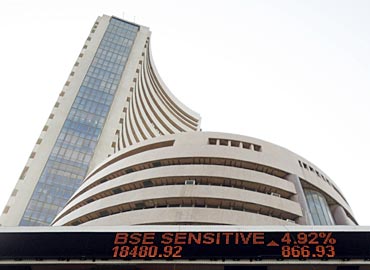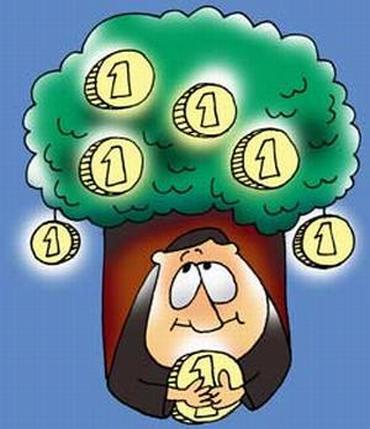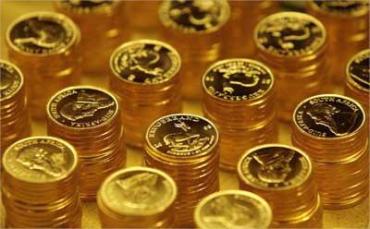 | « Back to article | Print this article |
A roadmap for smart investors in 2012
Should investors buy stocks, debt, gold and real estate in 2012 after a forgettable 2011? Read this to find out.
2011 was not a very happy year for investors. Scandals, corruption, high inflation, slow growth and many more negatives weighed heavily on the Indian stock markets. With the world getting smaller in an increasingly global world, the Euro crisis and the subsequent global gloom made matters worse for India. But let bygones be bygones. 2012 has started on a positive note.
Let us have a look what the New Year has in store for different asset classes.
Although 2012 has started off on a positive note, a long-term investor needs to look at what really were the factors that led to the losses suffered in 2011. It was mostly the macro economic factors that played a big role in influencing the markets. The same factors will also play a big role in 2012.
The negative factors of 2011 were:
- Rupee vs dollar: The rupee depreciated and touched almost Rs 54 to a dollar.
- Inflation: Touched 9 per cent in 2011 and food inflation touched 13 to 14 per cent
- Interest rates: To curb inflation Reserve Bank of India (RBI) increased rates 6 times straight making loans dearer
- Fiscal deficit: While it had come down in recent years the gap increased in 2011
Click here for Rediff Realtime News
Sheetal Jhaveri is a certified financial planner. She can be reached at dhanplanner@rediffmail.com.
A roadmap for smart investors in 2012
2012 has started with a bang. January saw increased FII investments, better inflation numbers, expectation of interest rate cut, and the expectation of growth-boosting reform by the government. But even though these factors look favourable, investors would be better advised to maintain a cautious approach and continue with systematic investment plan (SIP) as against lump sum investments.
There are still many ifs and buts and the best approach would be spread one's investments across time frames and volatilities using SIPs and getting the benefit of rupee cost averaging.
A roadmap for smart investors in 2012
If there indeed is a rate cut on the cards then it will be a good time to invest in debt funds as interest rates and returns vary inversely. Check RBI's stance on credit policy in 2012 and if they look like cooling rates then it will be a good time to invest in short term debt funds. For a fixed deposit investor with the rate cut kicking in will be bad as banks will eventually reduce interest rates. So it would make good sense to lock in their fixed deposits at current high interest rates.
Although it is not going to happen overnight RBI is expected to go slow on rate cuts and hence its effects will also be gradual. But remember now is a good time to invest in fixed deposits or fixed maturity plans.
A roadmap for smart investors in 2012
As shimmering as ever. Remember till the time global financial crises does not get resolved completely, gold will continue to remain a safe haven. And although there may not be any sudden spurt in prices the chances of it coming crashing down is also almost remote. It can remain range bound between 1,500 dollars to 1,900 dollars per ounce.
So gold remains a hold and a buy but the same principle of SIP should be applied here also so as to mitigate any time-based risks.
A roadmap for smart investors in 2012
Over the last few years, no asset class has given as phenomenal returns as real estate. Property prices have soared through the roof with returns in excess of 300 to 500 per cent in many cases. No wonder that real estate is now becoming a favourite amongst all other investment classes. But if you are looking to make any fresh investments in real estate, there is a word of caution.
At today's exorbitant prices, there is a likelihood that prices might correct a bit from here. So buy real estate but keep this new risky development in mind. Also with the chances of interest rates being cut in the near future, it makes more sense to wait for a while before investing so that you can avail of cheaper loans and your less annual outgo in terms of EMIs.
For NRIs, with the dollar appreciating it is a good time for them to send their money back into India. Just a year back dollar was between Rs 44 and Rs 45 and had touched almost Rs 54 recently. Although it has come down to Rs 49 it is still positive for NRIs. With the government coming out with economic boosting reforms infrastructure is always a big gainer. So watch out for this sector.
All said and done, do remember to base your investments on your goals and let these ups and downs not deter you from your path. You need to review your investment portfolio every quarter but if you have goal-based investments these volatility will not effect your financial goal.




